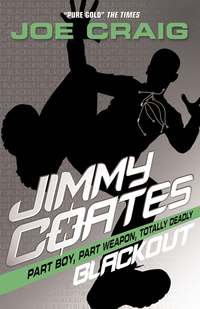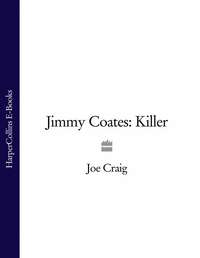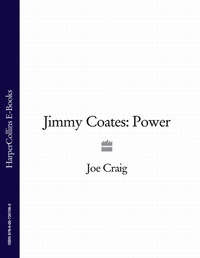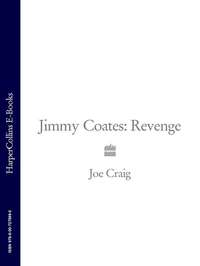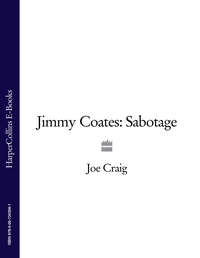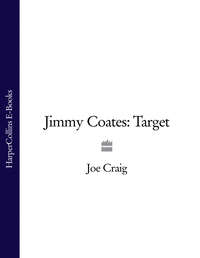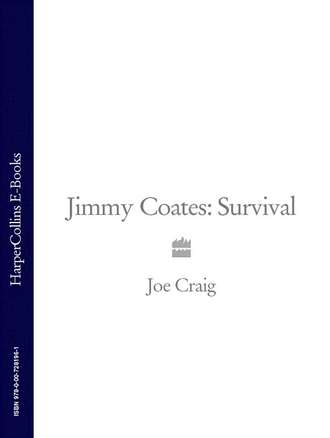
Полная версия
Jimmy Coates: Survival
Jimmy opened his eyes. He was surrounded by a whiteness so intense that at first it hurt the backs of his eyes. He tried to look down at his body, but moving his head was awkward, as if it was being held in place by a surgical clamp. Every bit of his skin was prickling from the cold. It grew more acute the more awake he became, until it was the pain of a thousand stabs.
The pounding of his heart and the flow of blood through his ears were the only sounds. Beyond that was unwavering silence. His slightest movement caused a low creak that was like a hurricane in comparison. What is that? he asked himself. Then he realised it was the noise of densely packed snow shifting.
Only now did Jimmy remember the details of his crash and that he must be suspended in a snowdrift in the Pyrenees. Every sensation became less disturbing because he could explain it. But then he was attacked by another memory – the reason he was here in the first place. Britain is going to attack France. How long have I been unconscious? I have to warn the French. For all he knew he could be too late.
Jimmy tried to raise his right hand to wipe his face, but the weight of snow packed in around him held it down. He jerked it free, sending a stab of agony through his ribcage.
He struggled to think clearly. He didn’t even know which way was up. He spat out a globule of saliva. His mouth was so dry it took some effort. The spit dribbled up his cheek, then froze just below his eye.
Great, he thought. I’m upside-down.
At last he loosened enough of the snow around him and tumbled backwards, just managing to avoid landing on his head. It was only a short fall, but the impact doubled every pain in his body. He gripped the right side of his ribcage and let out a cry of agony that rang off the cliff faces and echoed back to him.
The world was still almost completely white. Plumes of mist swirled around him, only parting for fleeting seconds to reveal glimpses of the mountain peaks. Massive rock formations, hundreds of times the size of Jimmy, poked their heads out of the whiteness to peer down at him, then disappeared again as if they’d seen enough.
Apart from these flashes of clarity, Jimmy’s visibility was less than a couple of metres. His body had developed the ability to see in the dark far better than any normal person and he had used it to escape some nasty situations in the past. But this wasn’t darkness – it was the opposite. His night-vision wasn’t going to help him here.
He glanced back and just made out the hole where he’d been stuck. Buried about half a metre into a wall of snow and ice was a cavity roughly the shape of Jimmy’s inverted body, with extra holes where he’d wriggled free.
He struggled to his feet, still clutching his ribs. Without realising he was doing it, his palms were prodding around the bones. When he came to the origin of the worst pain he winced and let out another cry. Two cracked, he heard himself thinking. He knew his programming was evaluating his condition and keeping him alive. Without it he would certainly have frozen to death hours ago.
He pulled the hood of his sweatshirt over his head and tried to calm down. He took several deep breaths, but every gulp of air chilled his gullet. Now he was out of the shelter of his snow hole, the wind brought the temperature plunging down. And Jimmy felt it threatening him. His shivering was brutal and uncontrollable. Then he looked down at his hands and knew that two cracked ribs were going to be the least of his problems. The ends of his fingers had turned yellow and white.
Immediately Jimmy found himself marching away from his snow hole. Every step sent a severe stab of agony from his feet. He assumed they were turning the same colour as his fingers, but he didn’t have any choice but to keep going. He deliberately planted every pace more firmly, almost revelling in the torture, challenging his programming to lessen the anguish. It was the only way he could make himself carry on walking.
Soon he developed a rhythm, then at last his programming swelled inside him. It felt as if he was growing an extra protective layer against the cold – almost like a fleece just underneath his skin. But still the wind bit into him, attacking every pore.
The further he walked, the more the snow around him revealed blackened corners of debris, like spots on a Dalmatian. A few paces on he saw the wreckage. It was a mess of ashen detritus and twisted metal, hardly recognisable as a plane. It might have been invisible in the snow except for fragments of metal shimmering under the thin layer of frost and blackened, burnt-out corners flapping in the wind.
Jimmy rushed forwards as fast as his body would allow. He crouched among the wreckage, desperate for some shelter, and dug around the ash and snow looking for anything that could help him. He tucked his hoodie into his trousers and scooped up armful after armful of ash from inside the body of the plane, stuffing it down his top for added insulation. Some he forced down his trouser legs too, until he felt like he was wearing a fat suit.
His hands were virtually useless now. He had no sensation in them except throbbing agony and couldn’t flex his fingers. Nevertheless he forced them into the snow and shovelled.
The only recognisable piece of debris he pulled from the wreckage was a half burned, blackened, in-flight washbag. The cloth cover had protected its contents surprisingly well. Jimmy pulled out an eye-mask, a mini-toothbrush, a tiny tube of toothpaste and a shoehorn.
With a rush in his veins, he snapped the shoehorn in two and used the elastic from the eye-mask to strap the pieces to the soles of his shoes. The upside-down curved shape would dig into the ice and give him vital extra grip.
Then he snatched up the travel-size tube of toothpaste, squeezed it in his fist and forced the contents down his throat.
Take all the energy you can get, he told himself. You’ve got some walking to do.
The waves attacked the shoreline with such ferocity, it was as if the water was angry that it couldn’t reach any further. For all its might, it couldn’t change the fact that just a few metres away was the edge of the largest desert on Earth. This was the battle line where thousands of miles of water met thousands of miles of sand – the West Coast of Africa.
On a mound overlooking the beach stood a single figure, lean and supple. She seemed to bend with the wind, not letting it bother her, and held a Zeiss-Ikon rangefinder steady at her eyes. Behind her trailed a stream of hair as black as her skin. Against the sand, her limbs stood out like charcoal twigs on snow.
Suddenly her whole body stiffened at what she saw in her scopes.
Through the thunder of the waves approached a ship so powerful and furious it looked like a salivating beast on its way to fight the whole of Africa single-handed. A Type 48 destroyer; 7500 tonnes of warship. She recognised the curious straight edges of the bridge section and the slim, arrow-like construction of the bow. From the centre rose a huge mast, which was more like an Egyptian monument. Radar balloons stuck out on either side and when the sun hit them they glinted like scowling eyes.
The destroyer was charging through the swell of the ocean towards the shore. She estimated the rate at over 30 knots. And at the sharp point in the front of the ship flew a bright Union Jack flag.
The British are coming, the girl thought, fear creeping into her joints.
She looked to her left, down the coastline, and adjusted the triangulation of the rangefinder. From here she had the perfect view of the only buildings for several kilometres. A couple of heavily marked tracks scarred the sands to the south and led to parallel lines of high fences. Within that was a complex of low buildings, connected to a dozen vast warehouses that backed on to the water. And there were two concrete towers supporting crude look-out stations, both topped by sun-bleached flags of red, white and blue – the French Tricolore.
Despite the distance, the girl could also make out human figures around the outer fence. Were they running? Yes. That’s when she knew for sure.
Mutam-ul-it was preparing for an attack.
So should we, she thought, steeling herself. Time to raise the alarm.
07 FEAR, PAIN AND A RED BEARD
Jimmy had been on the move for hours. The terrain was rugged and the air was thin. He could hear his brain assessing the surroundings. He had to be over 3000 metres up, he guessed. Above the snowline. That put him somewhere on one of the highest peaks, in the centre of the mountain range. But however difficult it was, he had to keep moving if he was going to stay alive. And there was the constant fear at the back of his mind, driving him on – the British attack on France. He had to stop it.
By now the agony that shot through his body with every step had mutated in his mind into some kind of reassurance. It told him he was still alive. That he was still moving. His legs felt so heavy that his feet dragged along the ground as he walked.
He travelled in a dead straight line, but the going was getting steeper. At least the fog had cleared a little so he could see his route further ahead. In the crash he’d slid a long way down the slope and he was paying for that now, always having to march against the gradient. Every few minutes he came to what looked like an impassable rock face, but his body seemed to relish the challenge. Despite the onset of frostbite and the cracked ribs, Jimmy free-climbed as if he’d been born a mountaineer. The hooks of shoehorn he’d fixed to his soles served as makeshift crampons.
With his eyes squinting against the elements and his body straining to keep his basic systems going, Jimmy fought on. But the real torment was in his mind. The whiteness that surrounded him seemed to reach into his brain to plant fear and worry, but most of all anger.
As he heaved himself up the cliff face, he thought back to the very first night that NJ7 had come for him. From that moment, almost everybody he trusted had betrayed him. He had believed Miss Bennett to be his form teacher and he’d even gone to her for protection. She had turned out to be the one woman who most wanted Jimmy dead. He felt a bitter laugh scratch at his throat.
But it had happened again and again. Eva’s parents had pretended to protect him, then betrayed him to NJ7. Colonel Keays had fooled Jimmy with the promise of CIA refuge. Jimmy’s stomach turned over when he thought of his own gullibility. How had he trusted any of these people? He had even convinced himself to use his assassin skills to work for Keays.
Never again, Jimmy thought. He told himself that if he made it across the Pyrenees to see Uno Stovorsky – or any other agent of the French Secret Service – he would beware every word that was said.
Trust your instinct, he urged himself. But in his heart he knew that even his instinct was untrustworthy. Sometimes it was the human part of him acting out of fear, or loyalty, or emotion. Sometimes it was the assassin in him, spurring him on towards self-defence, survival and violence. Perhaps even murder.
How could he know which instincts to trust and which to resist?
Around him, the light was fading. When darkness fell Jimmy knew the temperature would plummet even further. But there was no time to dig shelter for the night and rest. He had to keep going. There was a battle coming.
The largest destroyer in the British Navy dropped anchor 16 kilometres off the coast of Western Sahara. The waves pounded against the iron, but to the commanders and crew of HMS Enforcer the conditions were irrelevant. Two hundred and fifty men and women in pristine white or navy uniforms moved through the vessel with such precision and efficiency they were like parts of a single machine.
In no time the Tomahawk Land Attack Missiles were primed. The targets were locked into the guidance system. Everything was perfect. Nobody needed to say a word.
Except one.
The front section of the central mast contained the command centre – a triangular room with a low ceiling and a door at each corner. This was the brain of the ship. The longest wall, the base of the triangle, was a huge window that looked out over the front of the vessel. All along it, at hip level, was the control desk. From here, the senior officers and their staff made all their decisions and issued their orders.
But one man was completely out of place. He was wearing a suit and a life-jacket and was at least 50 centimetres shorter than everybody else. Compared to their naval steel, he was made of pie pastry.
“Remember,” he said, his voice quivering, “we can’t—”
He was cut off by a glance from Lieutenant-Commander Luke Love. Love’s expression was harder than the iron of the ship’s hull. The sunlight coming through the glass picked out the proud gold braid on the upper part of his sleeve – two stripes with a single loop.
“A single misplaced explosion…” the other man whispered, so intimidated by Lt Cdr Love’s glare that he could hardly speak. “It’s such a delicate environment, that’s all. And we don’t really know what safety systems Mutam-ul-it has in place. You know, for the…”
“Don’t worry, Dr Giesel,” Love replied calmly. “We know enough.” His voice was strangely cheerful, but deep and serious at the same time. Like an experienced headmaster. “Your report told us which specific buildings to hit and which to avoid,” he explained. “The place will remain fully operational and almost all in one piece, ready for your team to take over.”
The muscles round the officer’s mouth creased into a grim smile. Then he lay his hand on the number pad of the control desk in front of him and punched in an eight-digit code.
“Right,” he declared under his breath. “Time to nationalise this hellhole.”
Even the walls of the town of Tlon showed the troubled history of the state of Western Sahara. Almost a century of graffiti was layered on top of itself. The oldest protested against the rule of the Spanish, from the time when they had colonised the country. It was no longer visible under the blurred mess, but since then there had been plenty of other people to complain about: the Moroccans (Western Sahara’s neighbours to the north), the Americans (first for them being there, then for them leaving), a dozen different football teams (from the time when the politics were so complicated even the locals didn’t know who to protest about) and, most recently, the French.
Every building bore the marks of unrest and instability. Cracks ran through the stone walls and holes in the roofs had been covered with ragged, sun-bleached tarpaulin to keep the heat out. These days the cracks and holes couldn’t be fixed, even though they let the rats in, because they were conduits for the cables of the rudimentary electricity and telephone systems. They were also used for signalling.
A series of flashes reflected the sunlight from the low roof of a house. Nobody would have noticed the dark figure hidden under the tarpaulin. Five hundred metres away the signal was acknowledged with another flash, then repeated at a new angle. It was acknowledged again, a little further away this time, towards the centre of town.
The rooftops of Tlon glittered with rapid flashes. There were sounds too, on top of the normal bustle in the labyrinth of narrow streets. Across the town, telephones rang once, stopped, then rang again before being picked up. But no words were spoken – there were only sequences of taps and breaths.
In the small central market there was a sudden eruption of squawking. A boy ducked under one of the stalls, disturbing a small chicken coop on his way through. He sprinted across the street, hidden in the cloud of dust he kicked up. He slipped past a market stall selling bootleg DVDs and burst into the building opposite – three storeys, almost completely masked by a huge Coca-Cola billboard.
Inside was a bare room, dark except for the horizontal stripes of light cutting through the shutters, making the floorboards look like a zebra-skin rug. There was another door at the back, partially concealed by a stained red curtain.
In front of it stood a young guard with a machine gun across his chest and a silver rod where his left leg should have been. In the darkness that was almost all that was visible, until he recognised the boy and smiled, revealing three rounded, pearly teeth.
The boy didn’t smile back.
“Mutam-ul-it,” he gasped, trying to catch his breath.
The guard’s smile vanished. He nodded and knocked on the door behind him. It flew open immediately. In the doorway stood a broad man, silhouetted against the harsh light of the bare bulb inside his room.
A European observer might have noticed this man’s wild red beard, deep-set blue eyes and the explosion of orange hair on his head. But to everybody in this town he could be identified simply as ‘the white man’. Certainly nobody paid any attention to the thin black tie worn loosely around his neck, or to his slender-lapelled suit – black, dusty and worn at the elbows. Who here would even notice that on one lapel was a short, green stripe?
When this man spoke it was in grammatically perfect Hassaniya Arabic, but with a strong northern English accent.
“I told you this would happen,” he announced, waving the boy away. He turned to his guard. “Go get the trucks. Now.”
08 BIRDS IN FLIGHT
At last Jimmy could feel the temperature creeping up a couple of degrees. The sun was rising – not that he could see it with the fog still so thick. He’d made it through the night. But the white world around him seemed to close in. Then it started spinning.
If I stop I’ll die, he told himself. But the voice was faint, as if something inside him was still shouting, but he had lost the ability to hear it. Keep walking, it continued, so feebly it was quieter than a thought. Then came echoes of the phrases he had repeated to himself over and over thousands of times since he started his trek: Find Uno Stovorsky. Warn France. But they were confused and lost beneath the wind.
Then even that noise stopped. Jimmy no longer knew where he was or where he was going. For a second it even felt like his thoughts were completely detached from his body. All the pain floated from his limbs…
No, he heard. Find Stovorsky… France… But the words didn’t mean anything any more.
A light pierced his eyes. Something silver and glimmering. It seemed to pull Jimmy towards it. He was overwhelmed by the sensation that this was the most wonderful thing he had ever seen. The surrounding whiteness flickered from grey to blue to black. Is it night again? Jimmy wondered.
It was his last thought before his head hit the snow.
“Birds in flight, sir,” came a voice through Lt Cdr Love’s intercom. “The launch was clean.”
Dr Giesel ran his hands nervously up and down the front of his life-jacket, then straightened his tie.
“They’re definitely on target?” he whispered. “Because if they’re even slightly off—”
“This is the British Navy,” Love cut in. “We don’t do ‘slightly off’.” He kept his gaze straight ahead at the clutch of buildings on the horizon. The Tomahawk missiles twinkled above them. There was a glint of pride in his eye. But when he caught sight of the other man’s concern his expression softened. “The missiles are guided by GPS,” he explained, “and the targets can’t move. They’re buildings. Not people.”
Dr Giesel was satisfied for a second, until fear crept into his face again.
“What’s up?” Love asked. “Worried about killing a few Frenchmen?”
Dr Giesel’s mouth fell open in horror. How could this man be so flippant? Didn’t he realise he was effectively starting a war?
“Don’t worry,” chuckled Love. “Much as I would have loved to blow up some Frenchmen, we’ve got a live satellite feed that shows us they started evacuating as soon as they spotted us on the horizon. Our missiles will take about ninety seconds to reach them. That’s more than enough time for whoever’s left in there to clear out. Then the place is ours.” He winked and turned back to wait for the explosions. “It’s almost too easy, isn’t it?”
The intercom crackled into life again. “The last French truck has left the site, sir. The place is deserted.”
Love turned to Dr Giesel and gestured as if to say, ‘I told you.’
“Send the satellite feed up to my monitor,” he ordered, into the intercom.
A second later, one of the screens on Love’s control desk switched from a graphical display to a pin-sharp satellite image of the coast 16 kilometres ahead. The sand was a beautiful reddish-orange, but it was blemished by groups of square white buildings and criss-crossed by tracks. Then there were six much larger rectangular buildings lined up next to the water. They would have been overwhelming on the ground, but here they were reduced to knots of pixels. And racing away towards the edges of the screen were dozens of small black squares.
For a few seconds everybody on the bridge stood in silence, while French jeeps and trucks fled the compound. It was like watching germs squirming under a microscope. Some of them twisted and turned as if they didn’t know where to go. This was no orderly retreat, thought Dr Giesel.
In contrast, the atmosphere on the Enforcer was totally calm.
“Only a few people in the world have ever seen these images,” said Love softly. “You won’t find this place on Google, that’s for sure. And only a handful know what really goes on here.” He looked round at Dr Giesel. “Soon you’ll be the one in charge.”
Suddenly the screen went white. Dr Giesel’s eyes jumped from the monitor on the control desk to the horizon. Two towers of black smoke erupted into the sky. After a split-second they were lit up with orange flames. Then came the sound – two deep booms that shook the floor. Dr Giesel placed a hand on the control desk to steady himself, but noticed that he was the only person affected.
“Better prepare your team,” Love announced, so casually it was as if he had asked what was for dinner. “Mutam-ul-it will be under your control in no time.”
Dr Giesel was terrified to see what damage had been done, but at the same time he couldn’t look away. The smoke finally cleared enough for the ground to be visible again on the satellite feed. In the exact spots where there had been two white squares there were now two black patches, each surrounded by a ring of fire in the footprint of the destroyed buildings. The precision was incredible. But then the doctor noticed something at the edge of the screen.
“What’s that?” He nervously leaned forwards and laid a finger on the monitor. The black dots that had been rushing away from the compound were now rushing in every possible direction. Some had stopped completely, but after a few seconds they turned around and went back the way they came.
Lt Cdr Love peered at the screen. “What’s going on?” he barked into the intercom. “Don’t the French know how to evacuate? What are they doing heading back in?”
There was a pause, then a crackle. “It doesn’t appear to be the French, sir.”
“What?”
“It’s another force.”
“Another force?” There was confusion from everybody on the bridge.
“That’s right,” confirmed the voice on the intercom. “They appear to be taking over the French vehicles and…”
“I can see what they appear to be doing!” raged Love. “Why are they doing it? And how are we going to stop them?” He spun round to each of his officers in turn. Every one wore a blank stare.
“Well?” he bellowed. “Who the hell are these people?”
* * *
One second Mutam-ul-it was there; the next it had vanished in a plume of black smoke. Hot ash rained down around the girl, then hailstones formed out of the sand that had been melted together by the explosion.




